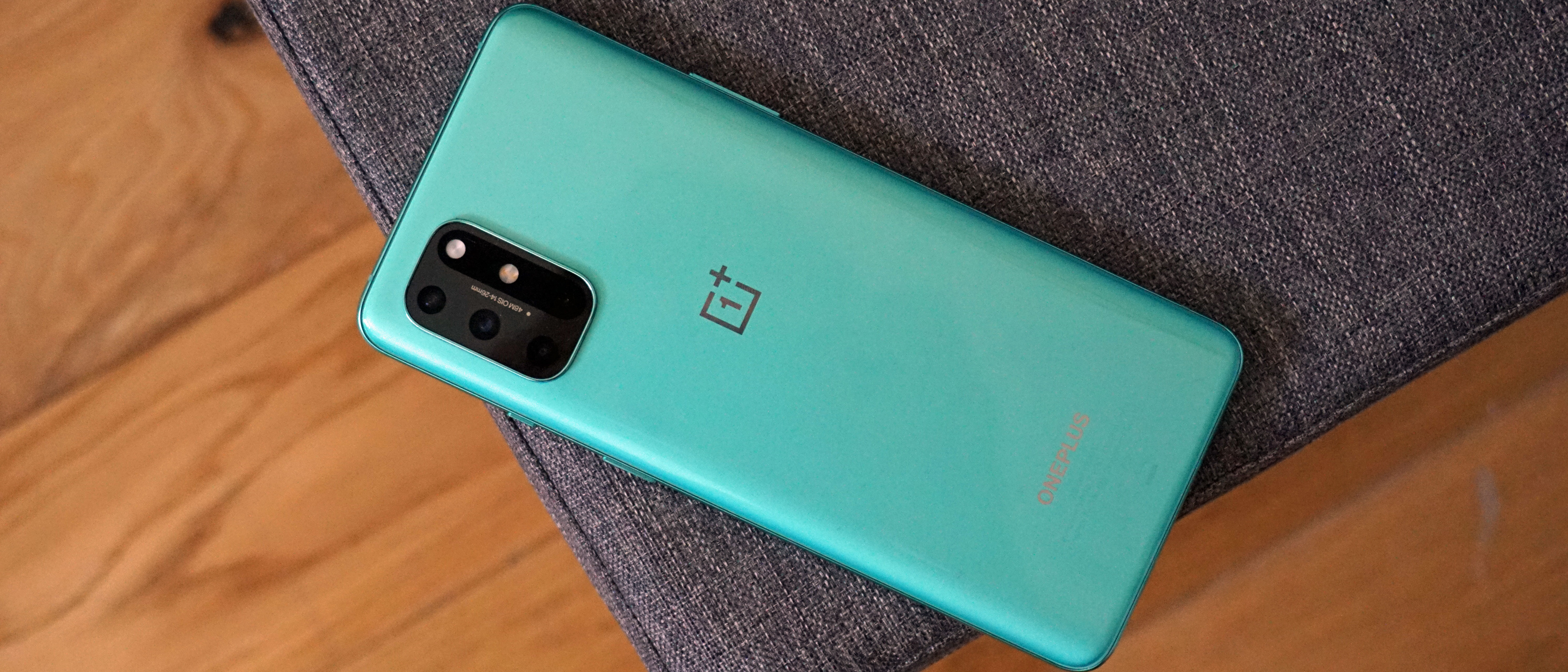TechRadar Verdict
The OnePlus 8T doesn’t change the game – particularly if you bought OnePlus 8 – but it is another great handset from the brand, with a stunning display, a unique look, good battery life and a camera that impresses. If you’re looking for a handset that’s a touch cheaper than most top-end phones, but still offers plenty of premium features, you’ve found it.
Pros
- +
Long-lasting battery
- +
Beautiful display
- +
Great software
Cons
- -
No wireless charging
- -
Lacklustre design
- -
No telephoto camera
Why you can trust TechRadar
Two-minute review
The OnePlus 8T lacks a headline feature or spec upgrade that makes it really stand out compared to its 8-series siblings, but OnePlus has taken everything that made those phones fantastic, and fashioned improvements in key areas to create its best handset yet.
OnePlus has been tweaking small elements of its flagship offerings with its T series for a number of years now, and it sticks to that formula with the 8T, rather than delivering a significant upgrade.
The new phone features the same processor and much of the same tech that we saw in the OnePlus 8, but a larger battery, tweaked camera setup and improved screen tech ensure that there’s enough new here to satisfy those looking for the best OnePlus has to offer.
The OnePlus 8T’s screen is a 6.55-inch 1080 x 2400 AMOLED panel with a fast refresh rate of 120Hz. We found that both its size and quality were great for watching movies and other media, or playing games, and there’s a fast and accurate in-display fingerprint scanner too.
On the design side OnePlus has shaken things up by adding a new Aquamarine Green color and changing the position of the rear camera block. It gives the handset a distinct style compared to recent OnePlus devices, but it’s not a game-changing look change.
Battery life is strong – we found the 8T would always last a full day from a full charge – and there’s fast-charging tech for those few and far between scenarios where you do find yourself running low and need a fast top-up.
The camera setup on the OnePlus 8T isn’t the best on the market, but many will find this better than what their current handset offers, and with a variety of modes and features we found it a fun phone camera to shoot with.
It doesn’t offer anything groundbreaking in the way of specs or features, but it’s rare that a new phone does these days. Instead, OnePlus is offering much of what you’ll get on the best devices from rival brands while undercutting those rivals on price, and it makes for another compelling release from the brand.
OnePlus 8T release date and price
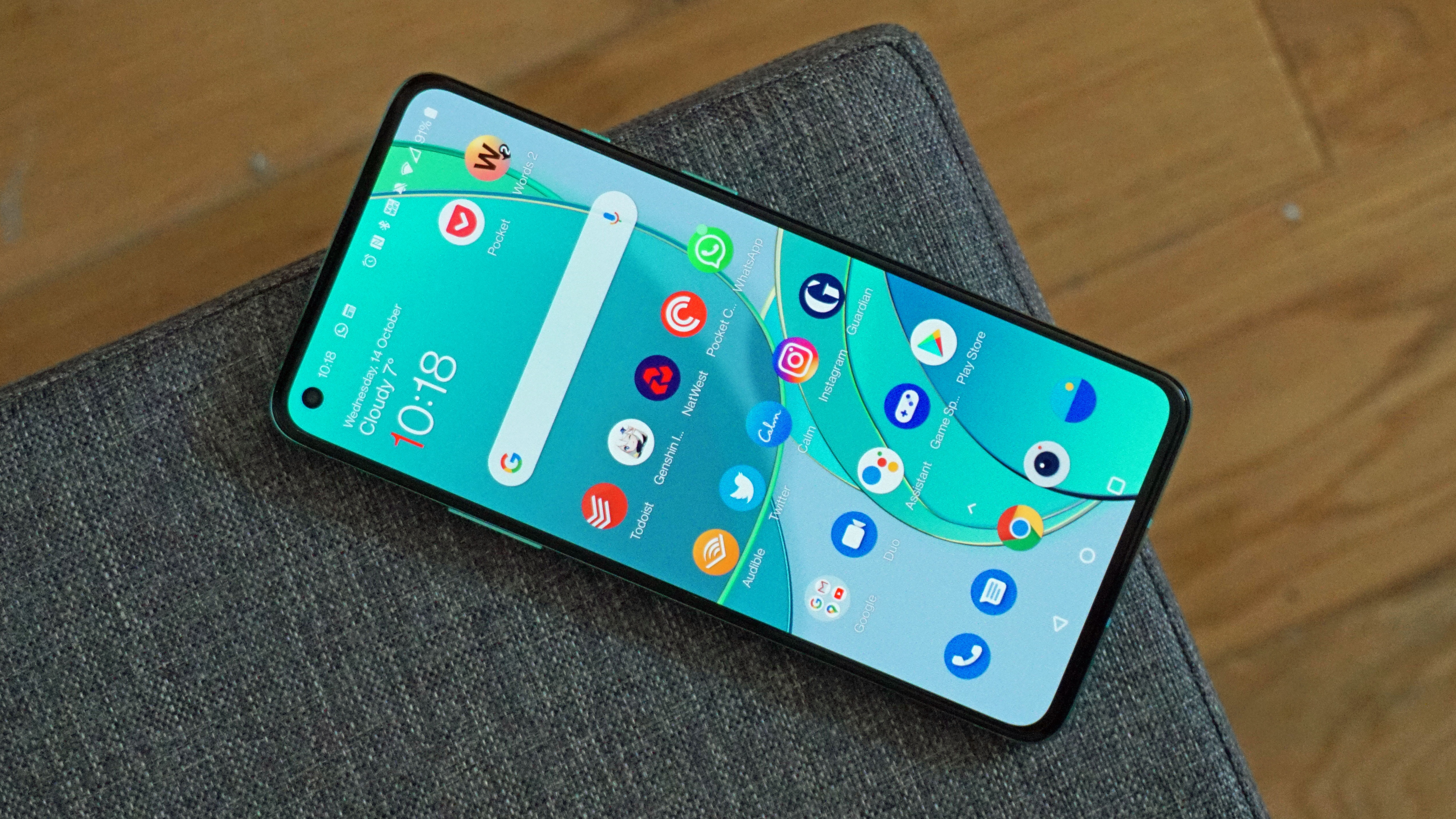
The OnePlus 8T release date in the US is October 23, while it's already on sale in the UK. OnePlus doesn’t sell its phones in Australia, so you won’t be able to buy the handset there.
As for the OnePlus 8T price, there’s a nice surprise as the handset costs less than the OnePlus 8. There's an 8GB of RAM and 128GB of storage variant on sale in the UK for £549 (around $700, AU$990). The phone released by the company earlier this year cost $699 / £599 (around AU$1,100) at launch.
That variant won't be available in the US. If you live in the US, you'll be able to buy a 12GB of RAM and 256GB of storage variant that costs $749 or £649 in the UK (around AU$1,175).
The price for the larger storage variant is also cheaper than the equivalent on the OnePlus 8, which cost $799 / £699 at launch. This is the first time we've seen OnePlus drop its prices for a T variant, but it may be frustrating from some in the US who want the cheaper 8GB variant.
Design
OnePlus phones have a distinct look, but while the OnePlus 8T looks every inch a OnePlus handset, there are a few design tweaks here that distinguish it from older phones in the lineup.
The OnePlus 8T has a glass rear, which is protected by Gorilla Glass technology, and a metal frame. The design feels premium, but not to the degree you may expect of a major brand's top-of-the-line phone
There’s a slim camera bump in the top-left corner of the rear of the phone, housing the rear camera lenses and flash. This was in the top-center on the last series of OnePlus products generation, and OnePlus says it’s been moved to allow for the inclusion of new cooling technology.
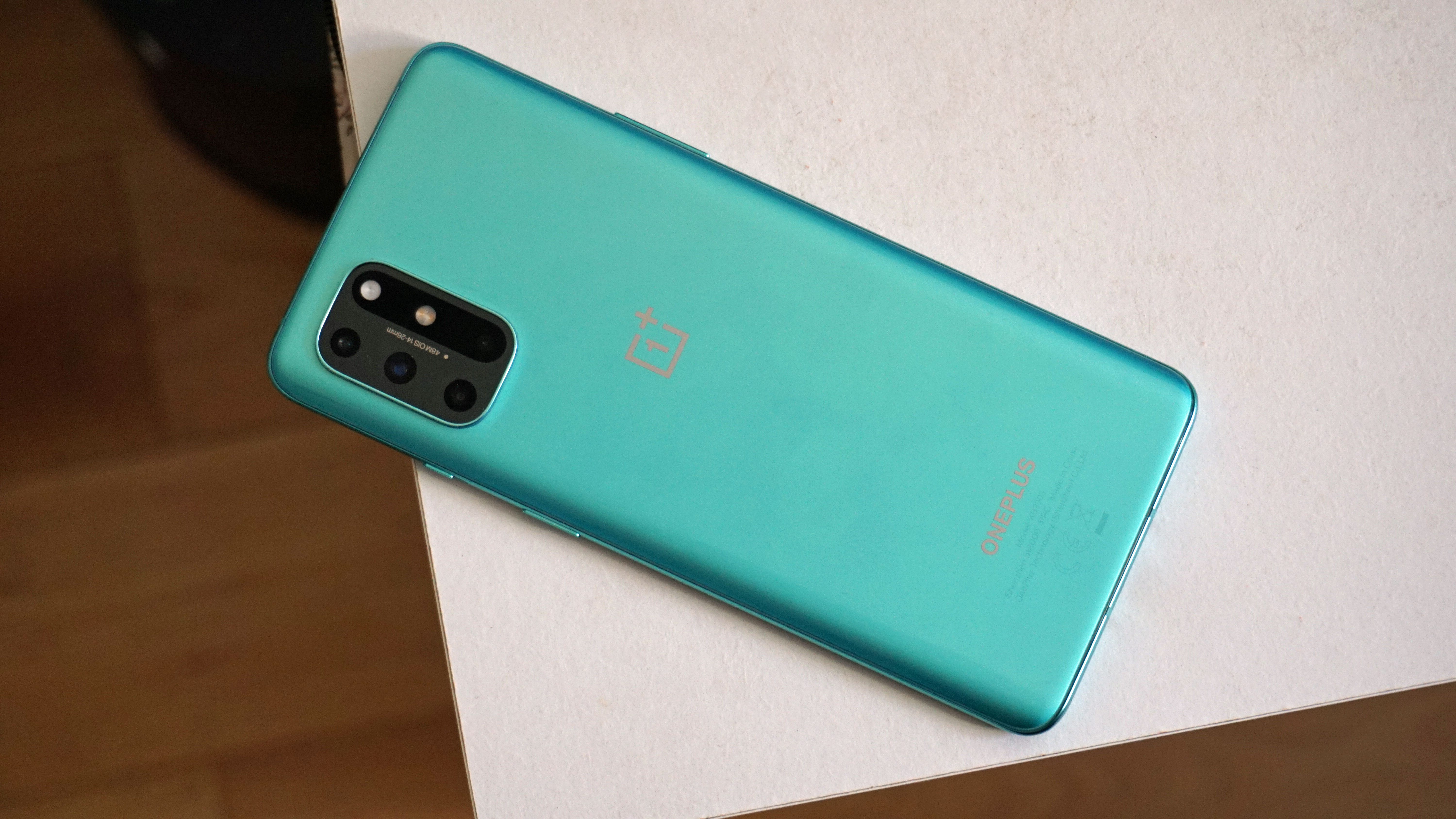
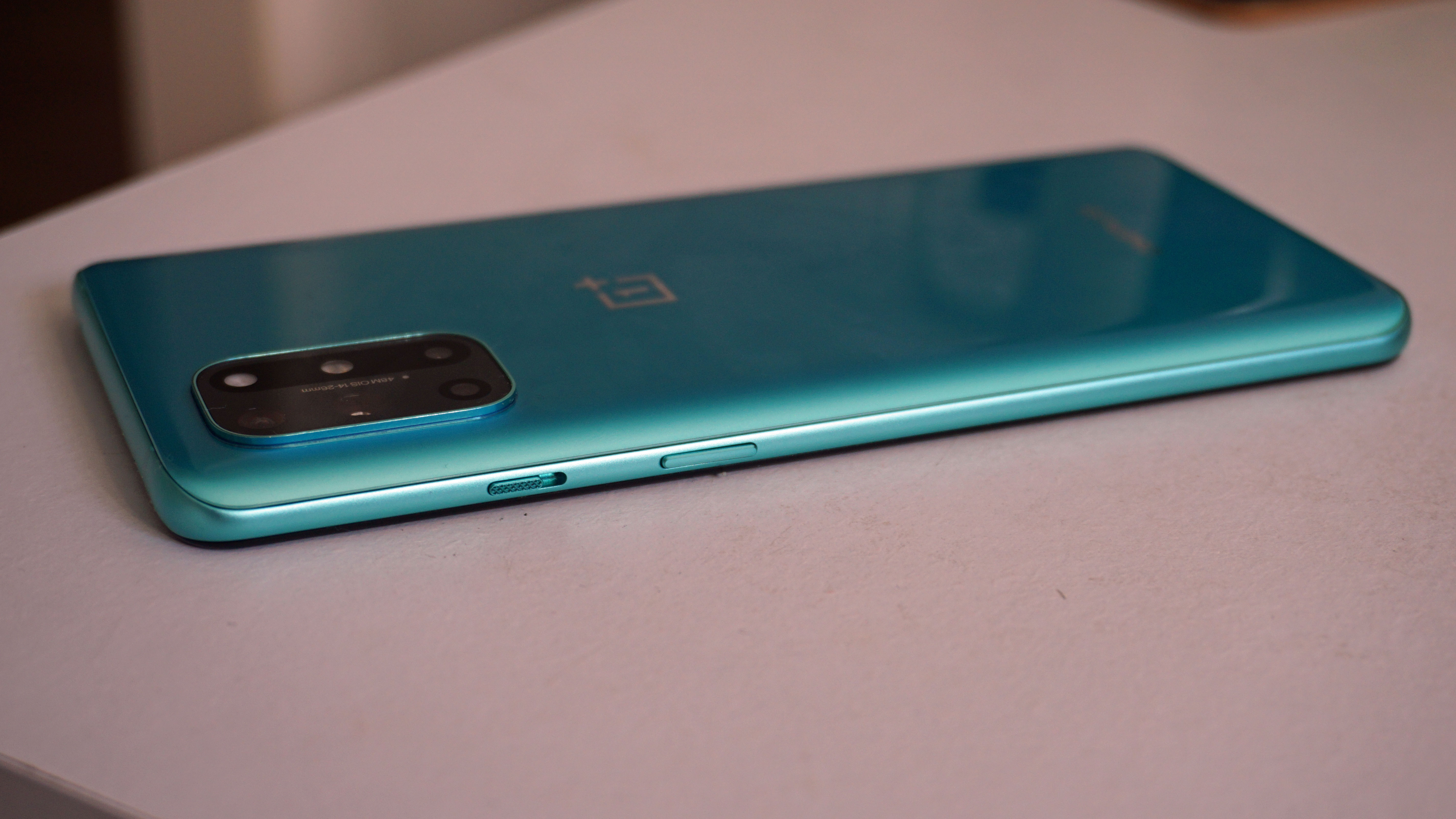
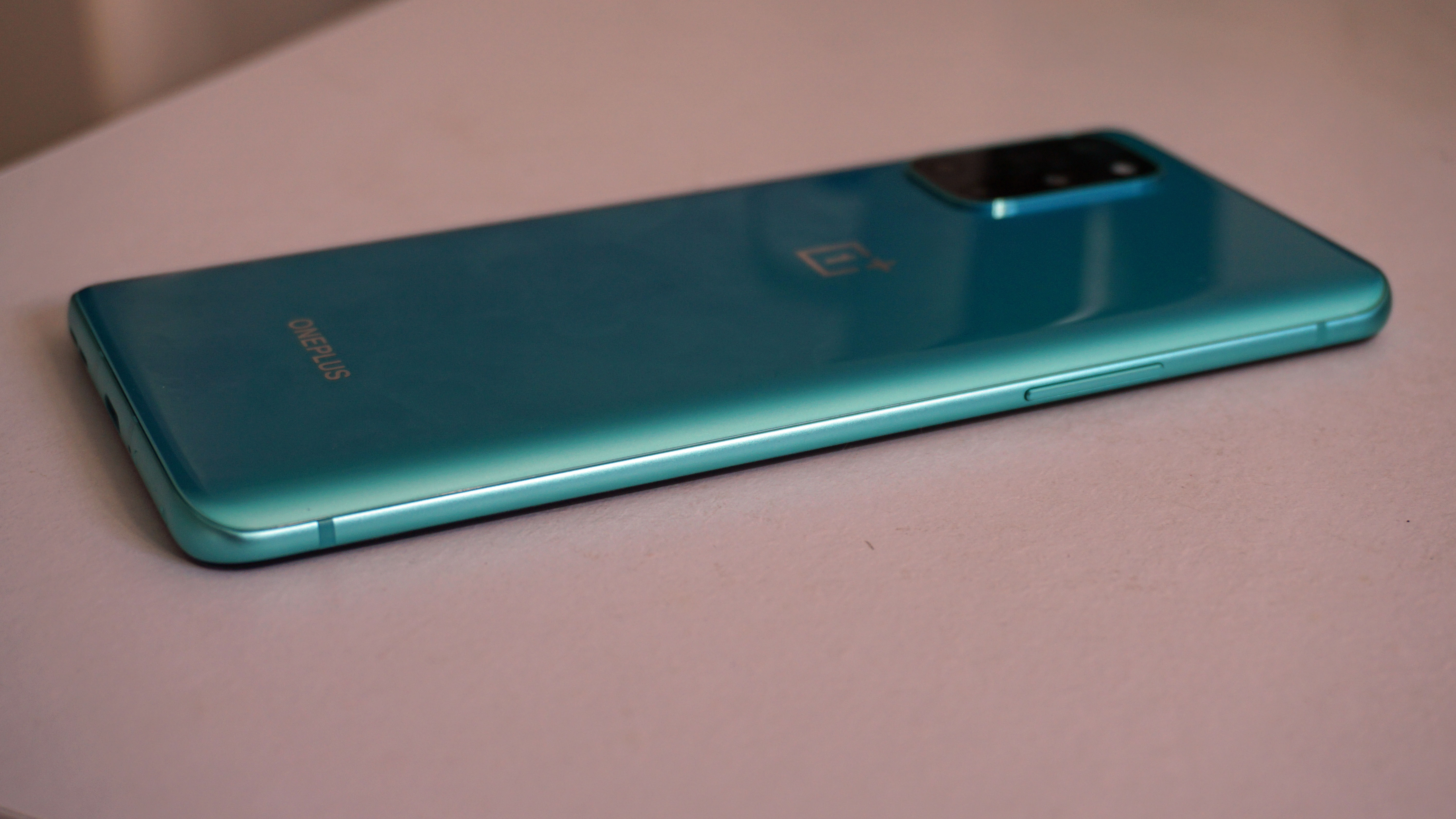
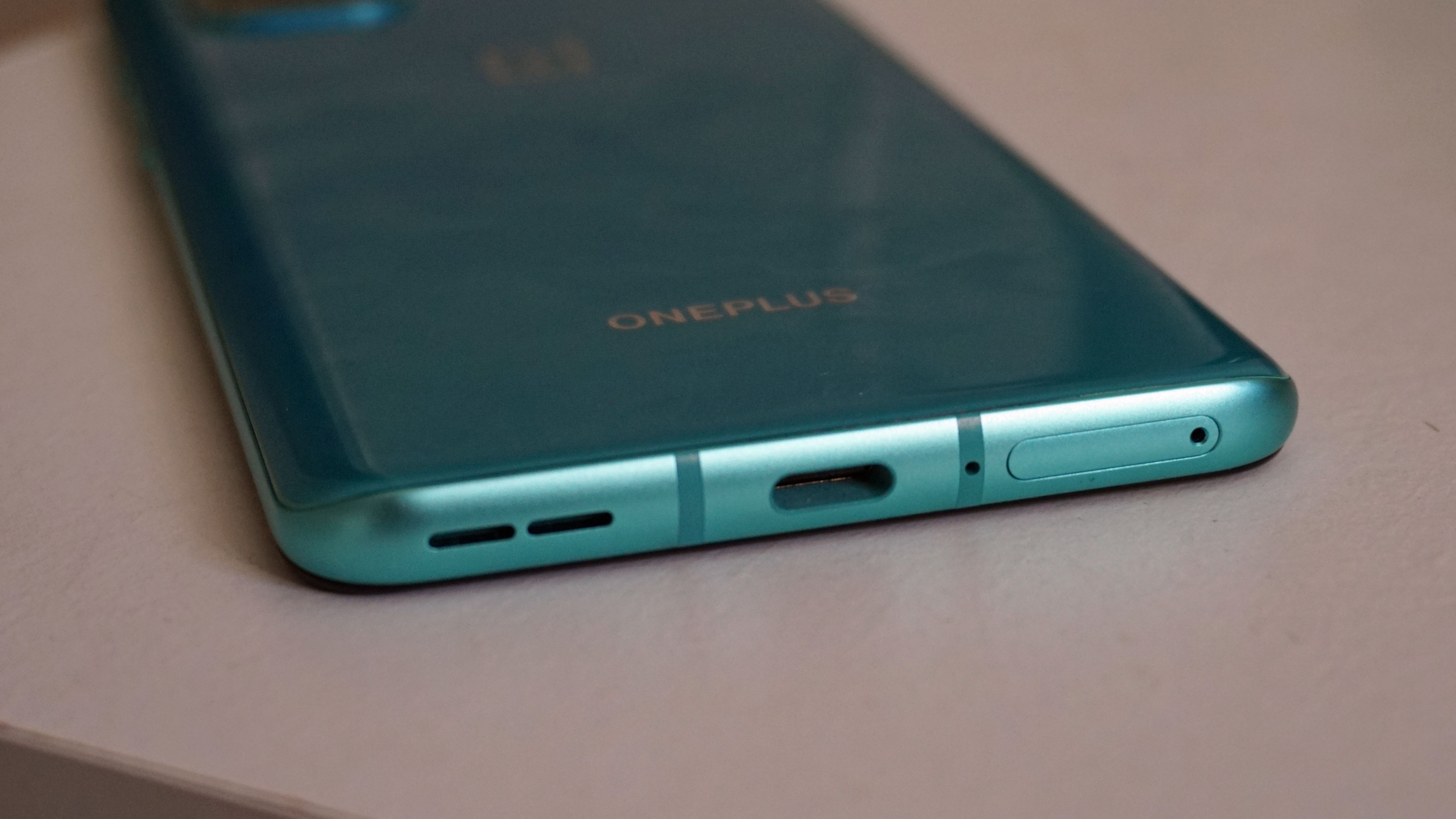
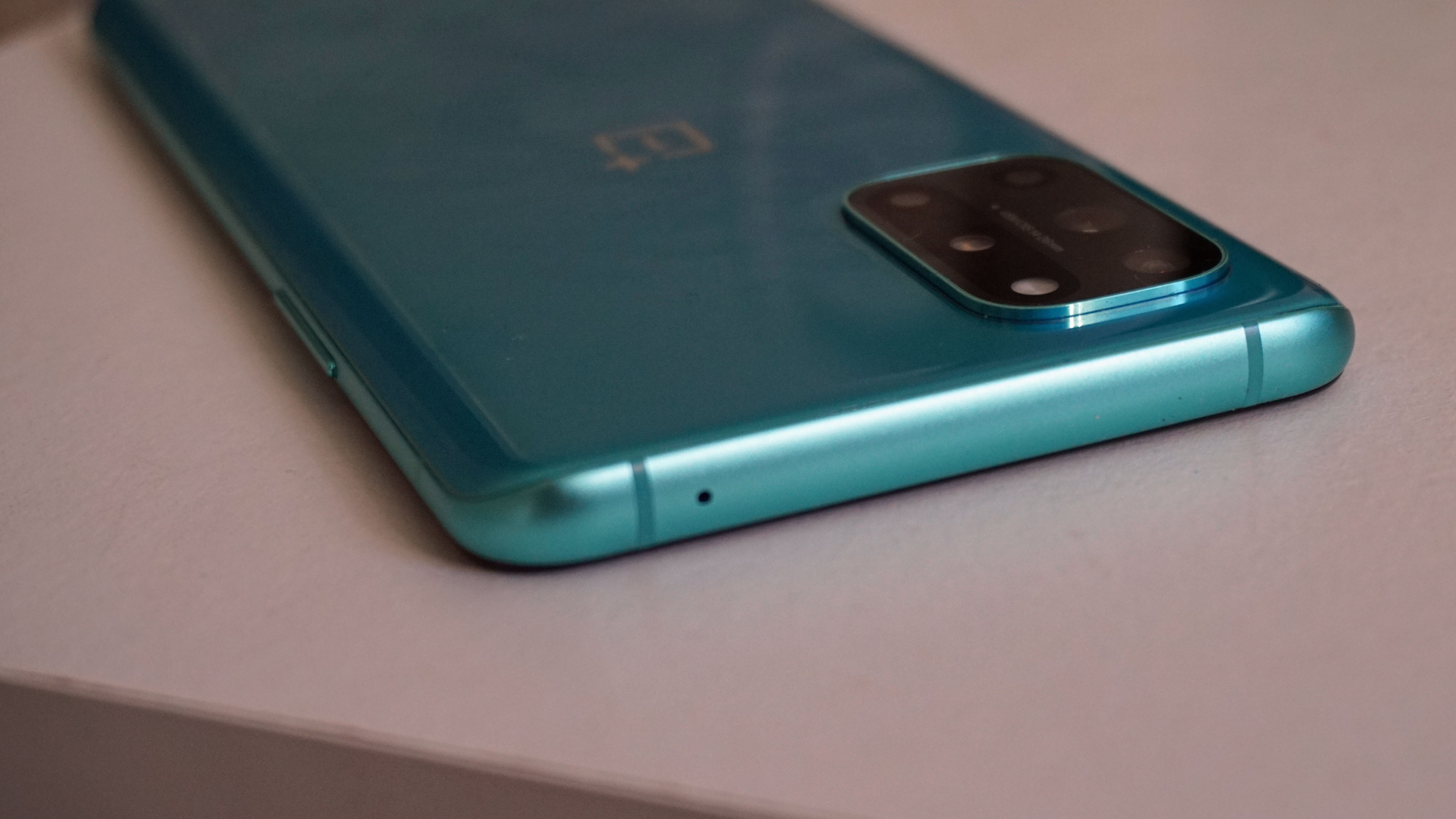
The handset measures 160.7mm x 74.1mm x 8.4mm, and weighs 188 grams – that’s around the size of most flagship handsets, and we found it comfortable to use in two hands.
If you’re looking for a smaller handset the 8T likely won’t be for you, as it can be difficult to reach across the 6.55-inch display when you’re holding the phone in one hand.
The USB-C port and SIM tray are on the bottom of the phone, along with a single speaker. The volume rocker is on the left-hand side, while the unlock button and silence slider are on the right.
The vast majority of Android phones don’t feature this slider, so this is a distinct element of OnePlus devices, allowing you to switch between notification sounds, vibration or complete silence.
The OnePlus 8T has an in-display fingerprint scanner, and we found this to work well throughout our testing, allowing us to unlock the phone quickly and easily – it became our preferred option for unlocking the phone, and we think it’s a feature users will enjoy.
The OnePlus 8T comes in two colors: Aquamarine Green – pictured throughout this review – or Lunar Silver. However, depending on where you’re buying the phone you may find that only one of these is available, so you may not have a choice.
Display
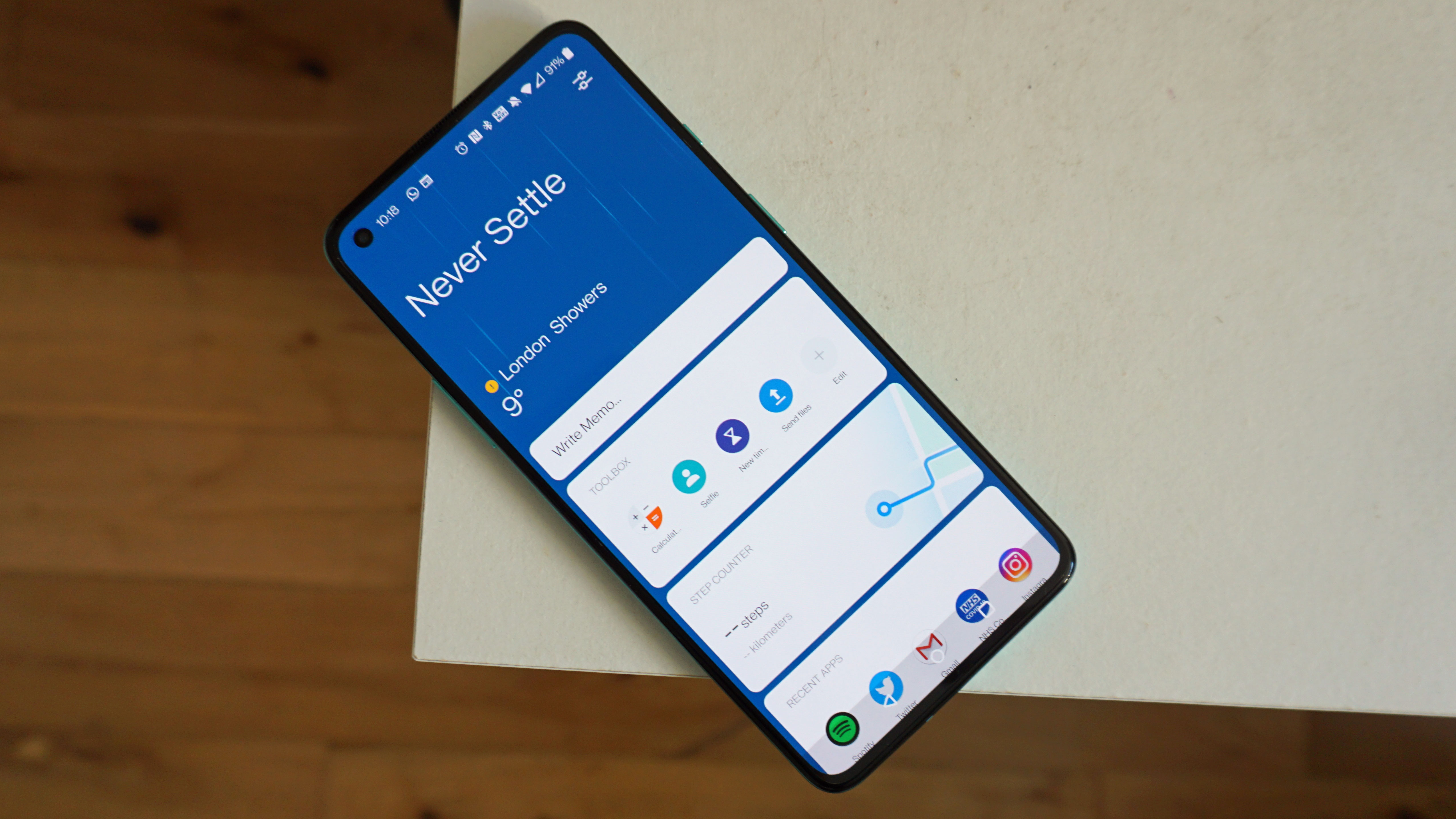
The OnePlus 8T features a 6.55-inch display that feels large, but not overly so, when you’re using the phone. There’s minimal bezel around the outside of the display, and that maximizes the screen-to-body ratio for a near-all-screen look.
The screen resolution is 2400 x 1080 resolution, which works out to 402 pixels per inch. It means this is a great screen for watching movies and other content, and we found that the colors were beautifully reproduced too.
OnePlus has included a 120Hz refresh rate, which means the display refreshes twice as quickly as a 60Hz display, which until relatively recently was the standard. It’s becoming a common feature on top-end phones, and it means the screen looks smoother when you’re scrolling your social media feeds or playing games.
We found this to look great on the OnePlus 8T, and you’ll notice it immediately you start using the phone. The brightness of the AMOLED screen appeared strong during our time testing the phone allowing you to read the display in bright sunlight and other scenarios.
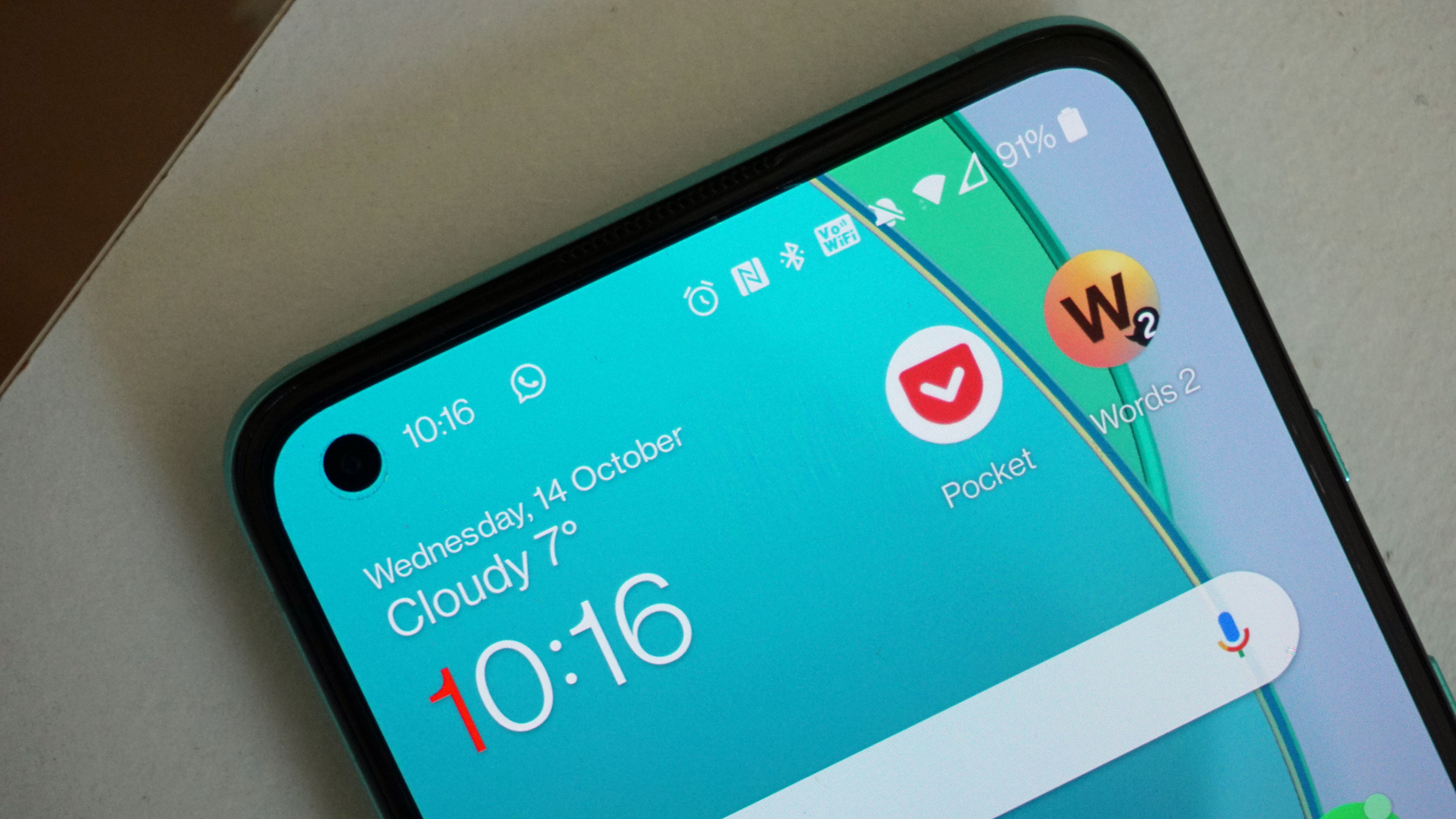
As on the OnePlus 8 and 8T, the selfie camera is housed behind a punch-hole at the top-left corner of the display. This doesn’t take up a lot of space, and it’s right in the corner of the phone, so it’s unobtrusive.
Camera
The OnePlus 8T has a capable camera array that performs well in a variety of scenarios, with four shooters on the rear, each of which brings something useful to the party. There’s a 48MP main camera with an aperture of f/1.7, which features both optical and electronic image stabilization.
There’s also a 16MP f/2.2 ultra-wide camera, a 5MP macro shooter, and a 2MP monochrome lens, of which more in a moment.
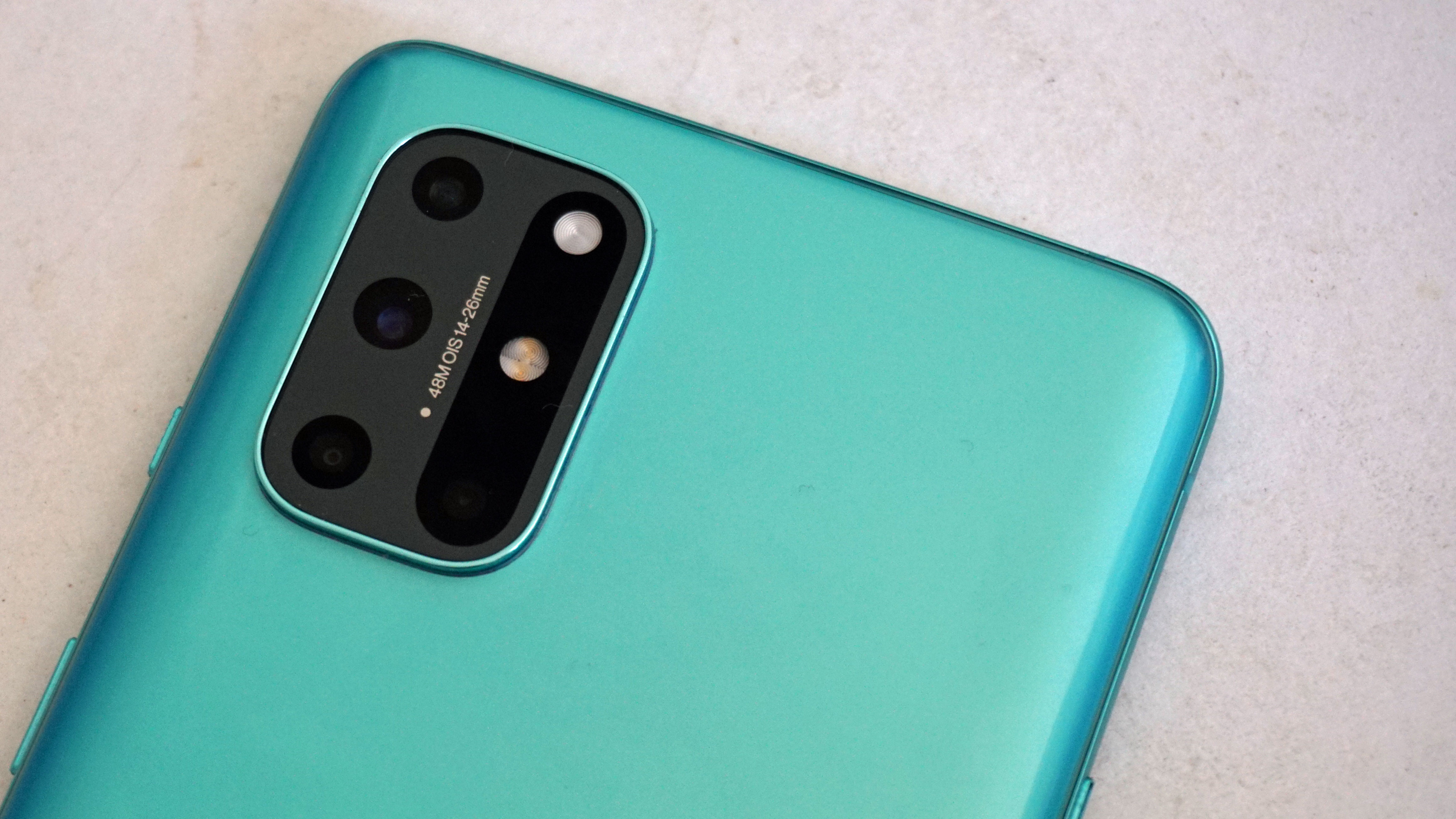
In our testing, we found the main 48MP camera to perform extremely well in good lighting – focusing is fast, making it easy to grab the shots you want, and images we took looked pleasingly true to life, with natural-looking colors and contrast.
The camera began to struggle a little in low-light scenarios, but the detail of most images we took still looked good, with sufficient color and detail. There’s no dedicated telephoto camera here, as you’ll find on some other top-end phones, but we found the built-in digital zoom worked well for most situations where we needed it.
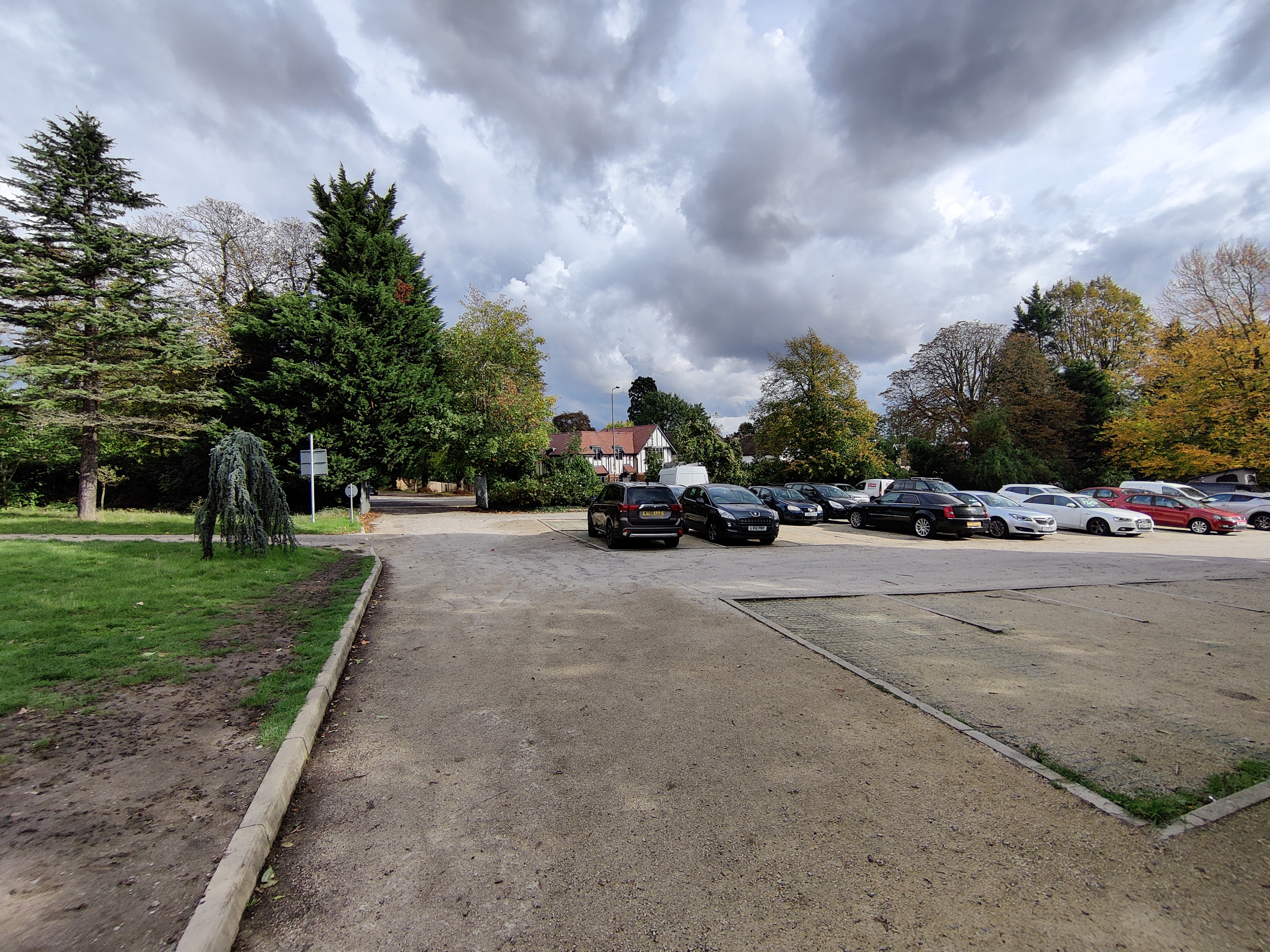
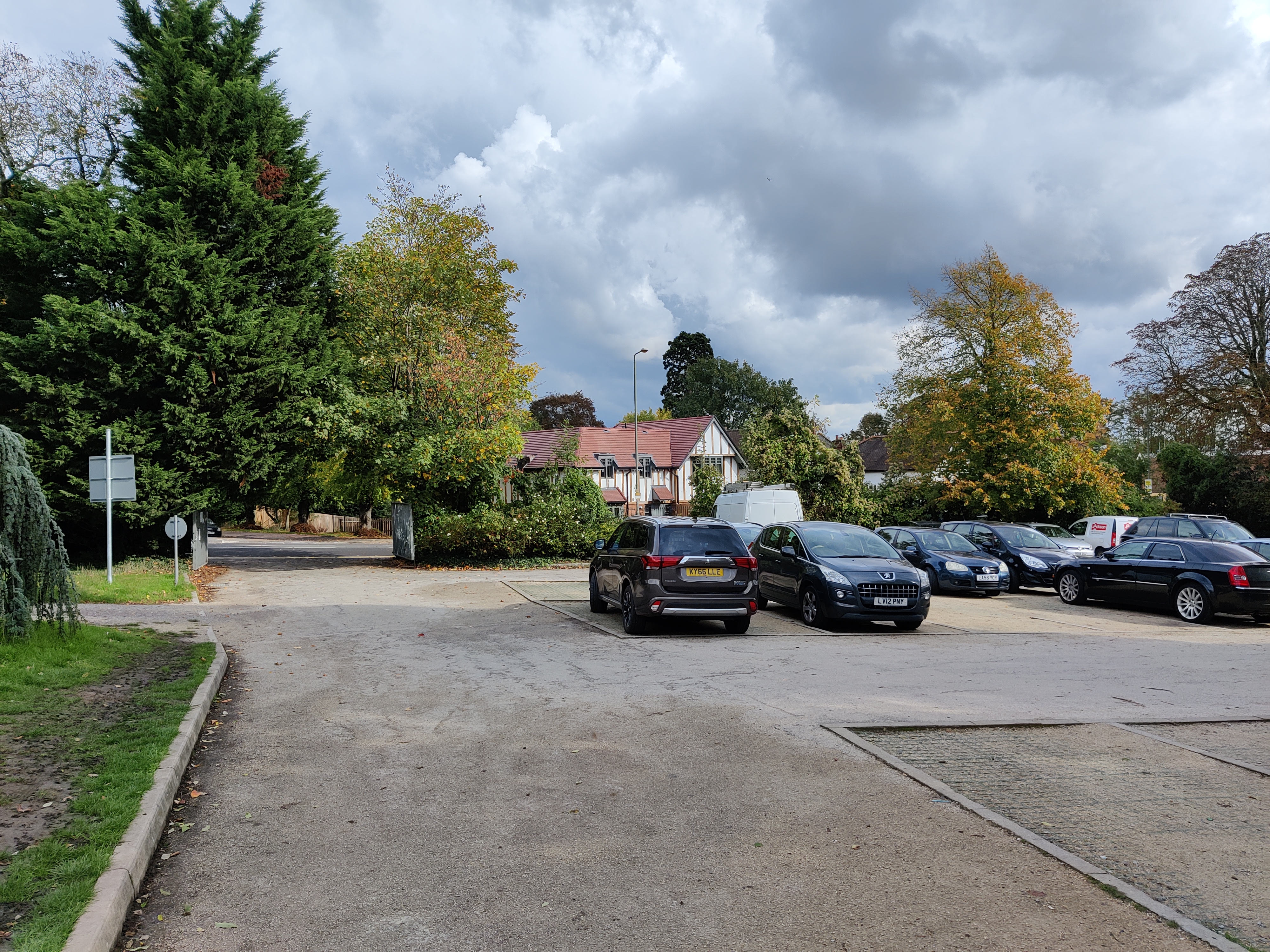
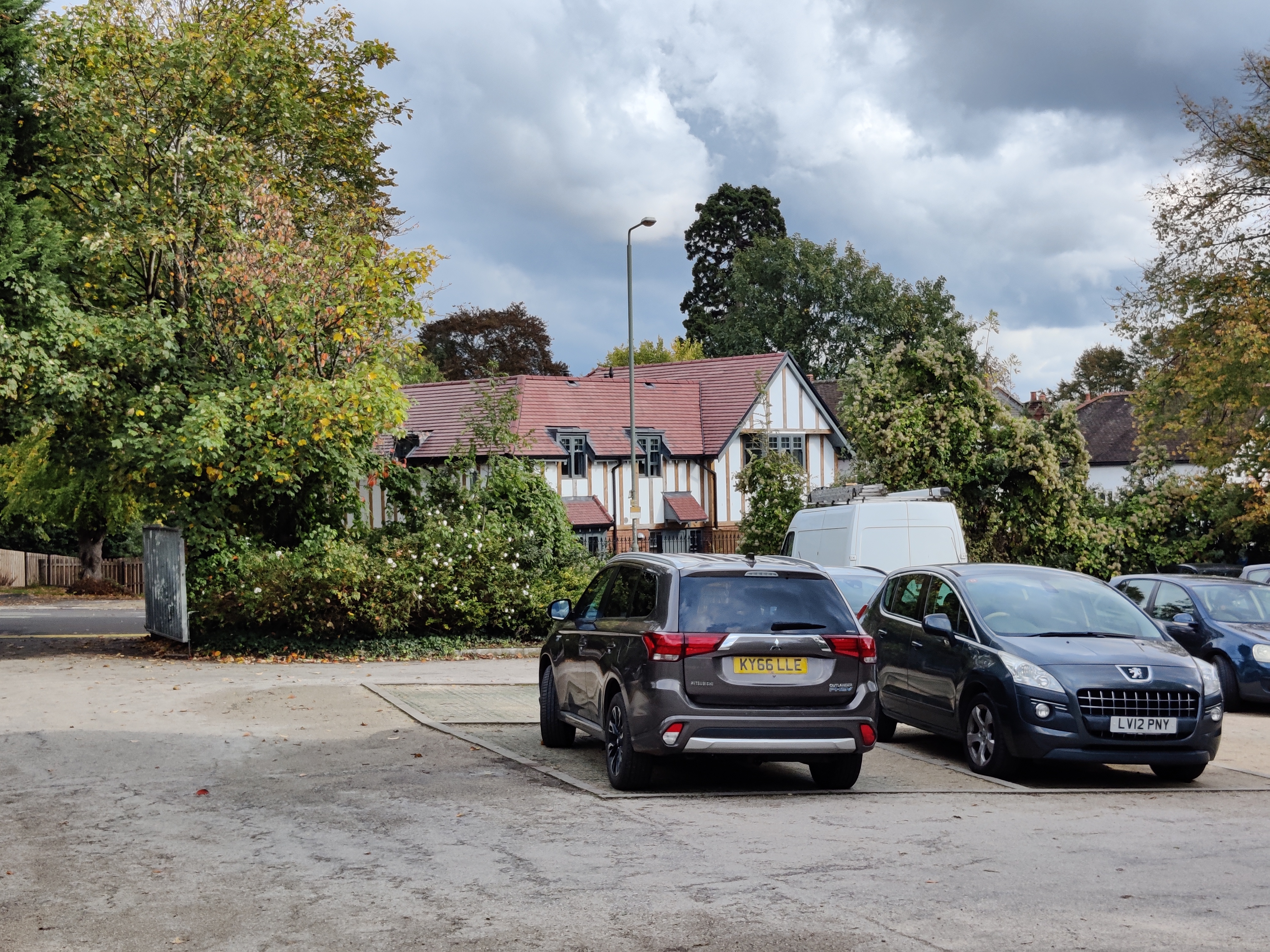
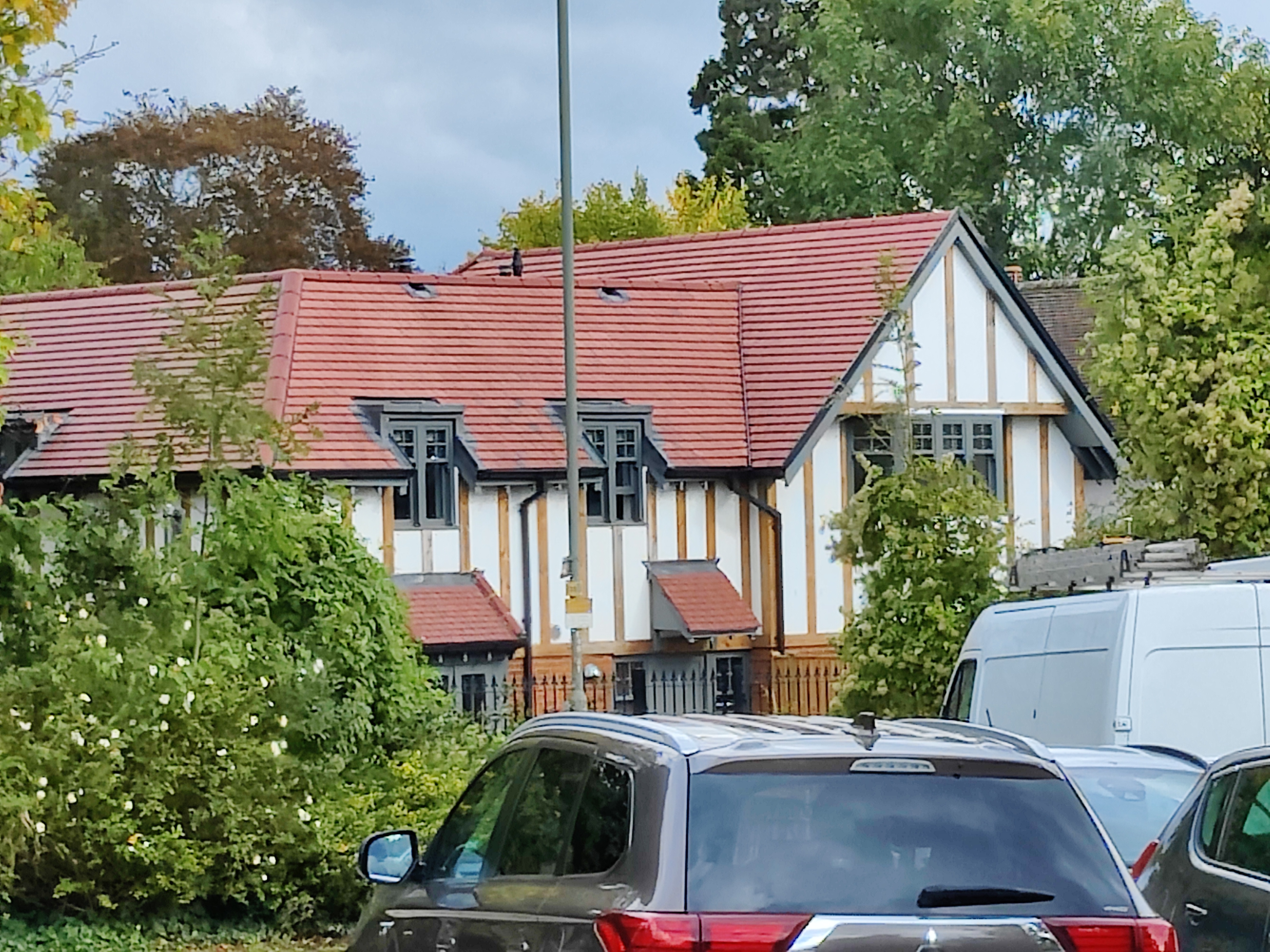
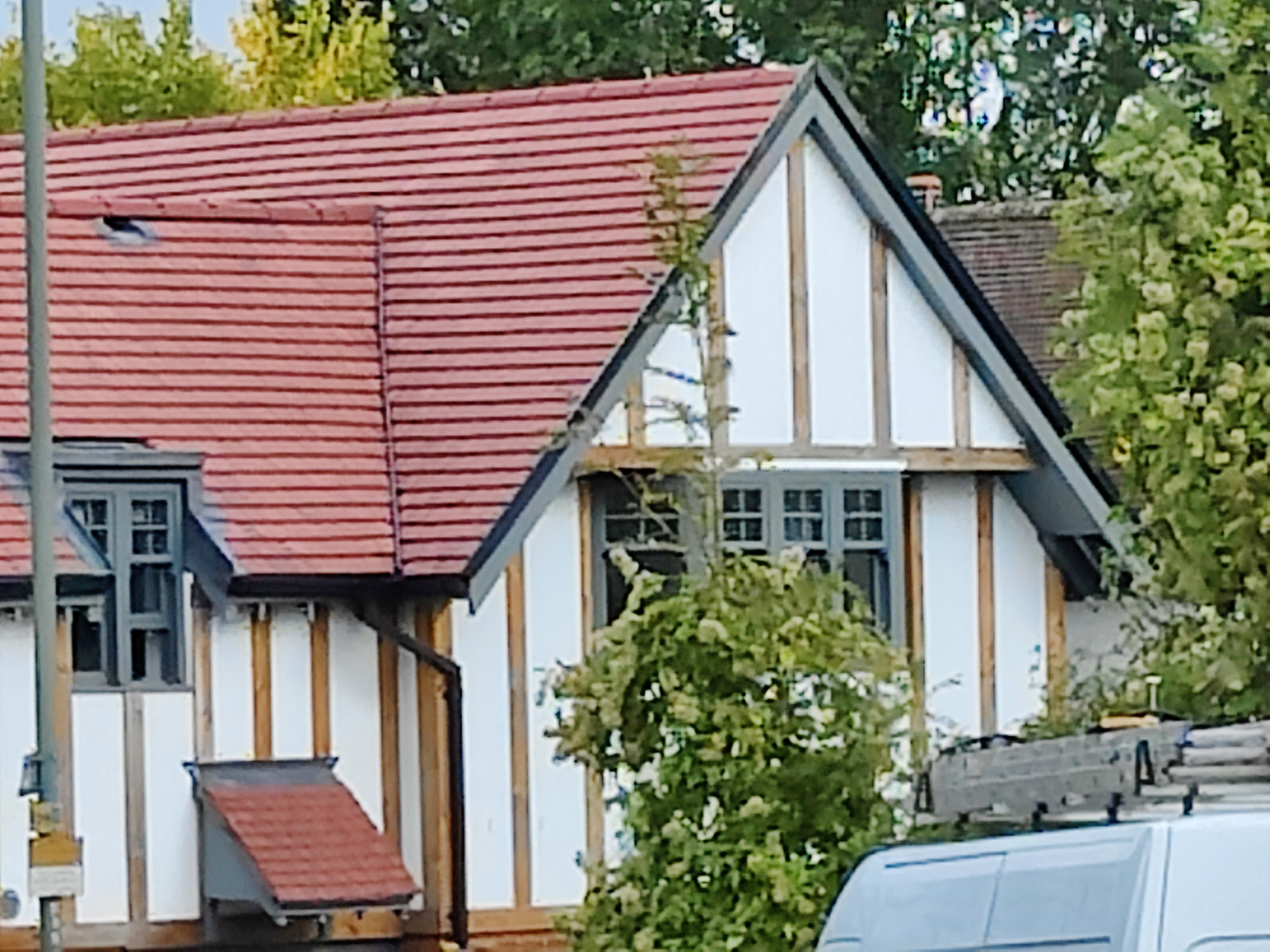
It can zoom up to 10 times, but the quality drops down significantly when you’re using that. There’s also a macro camera, which we found was able to help out with shooting close-up images but it isn’t remarkably better than most other Android phones.
The 2MP monochrome camera works alongside the main camera to capture black-and-white images, the idea being that the resulting photos look more natural that color shots with a B&W filter applied, akin to photos taken with black-and-white film.
You can see some examples of the results below:



It’s an interesting idea, and we found it to work well, although we didn’t notice a huge difference between the resulting images and ones we applied a filter to – more serious students of photography may appreciate it though.
You can shoot 4K video at either 30 or 60 frames per second on the rear camera, with super slow motion available at 720p, and a timelapse mode. The optical image stabilization helps make video recording smoother than on other phones too.
On the front of the phone is a 16MP front-facing camera, and we found this more than suitable for video calling as well as taking selfies.
Camera samples
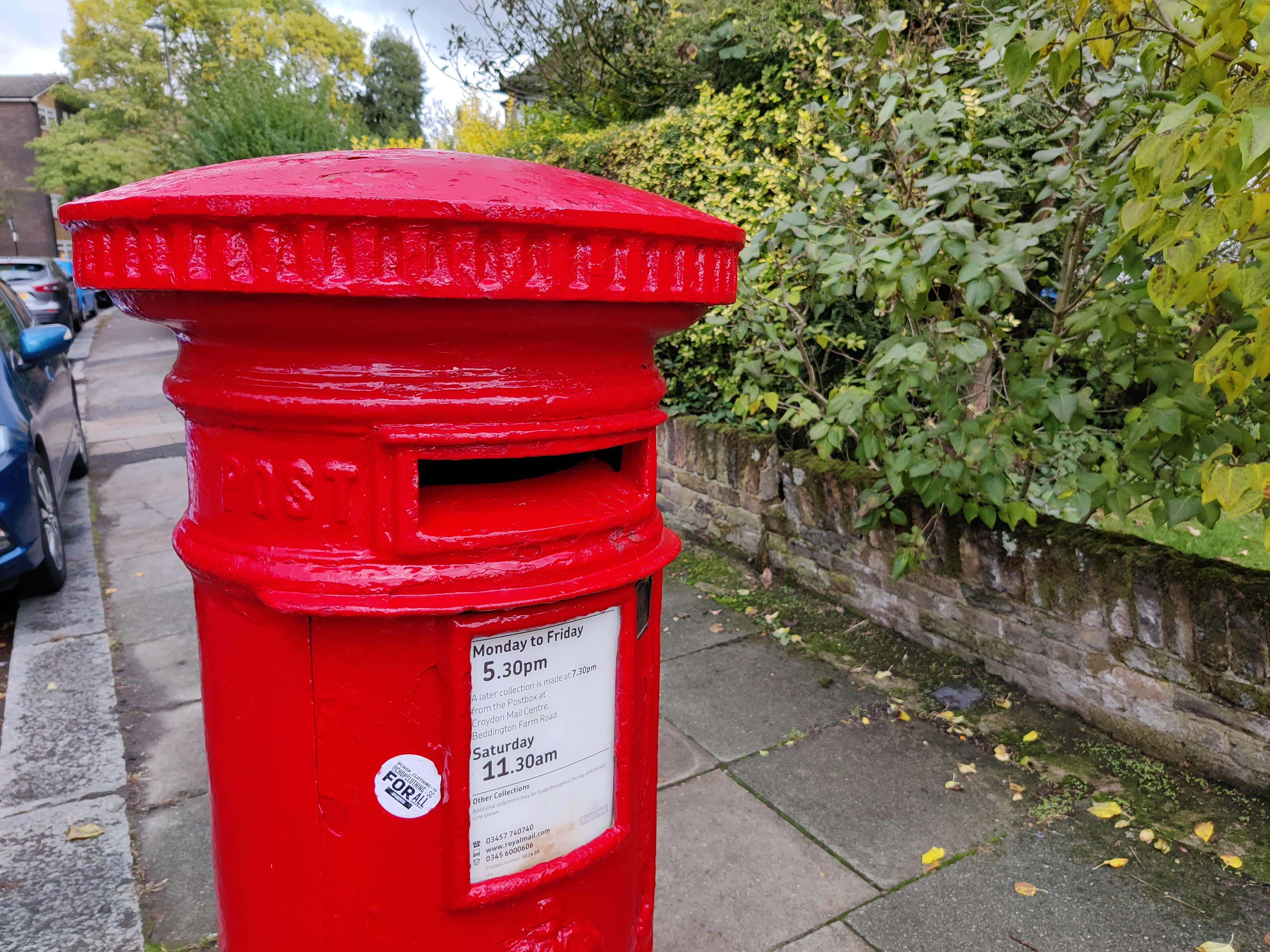
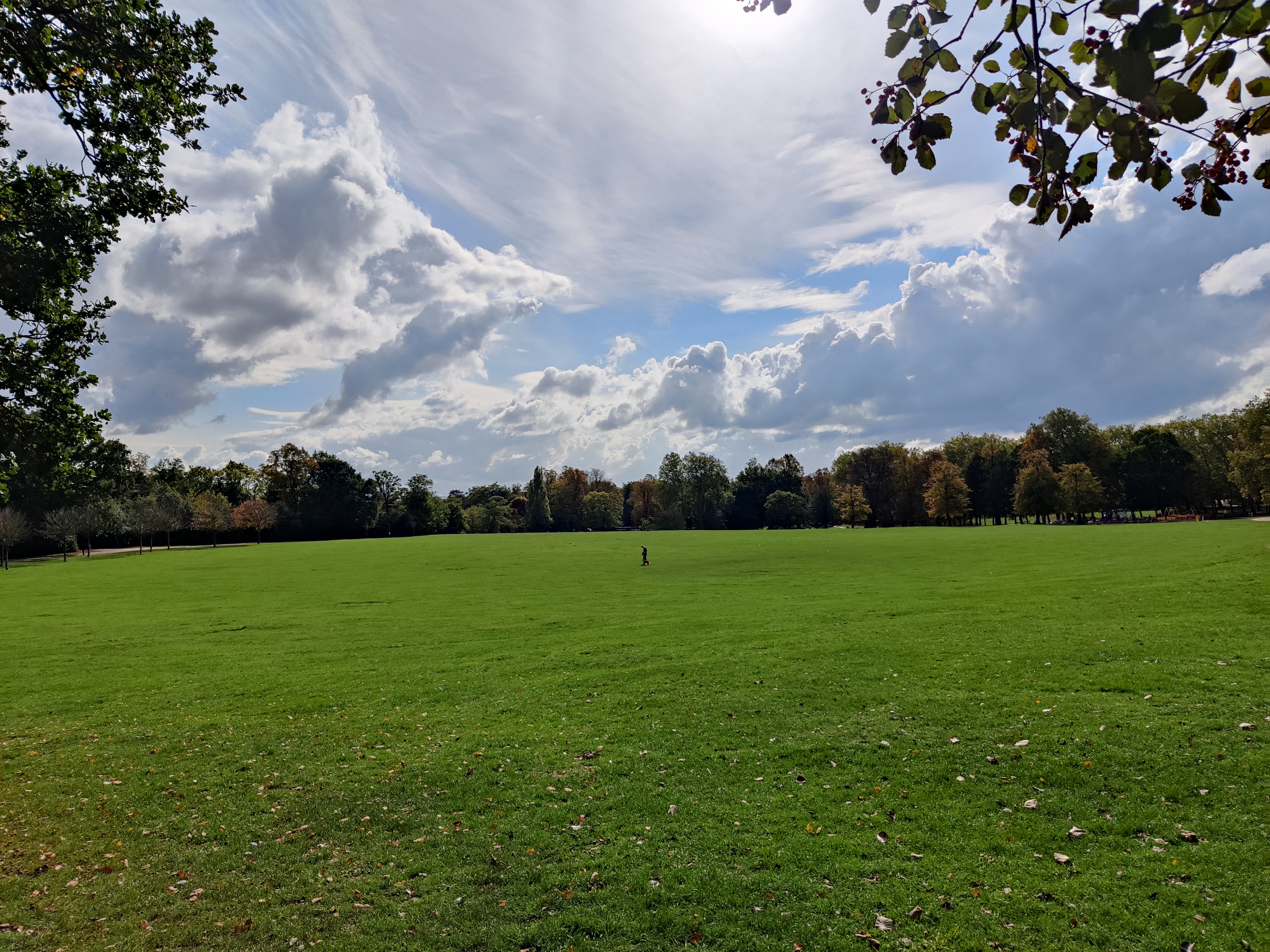
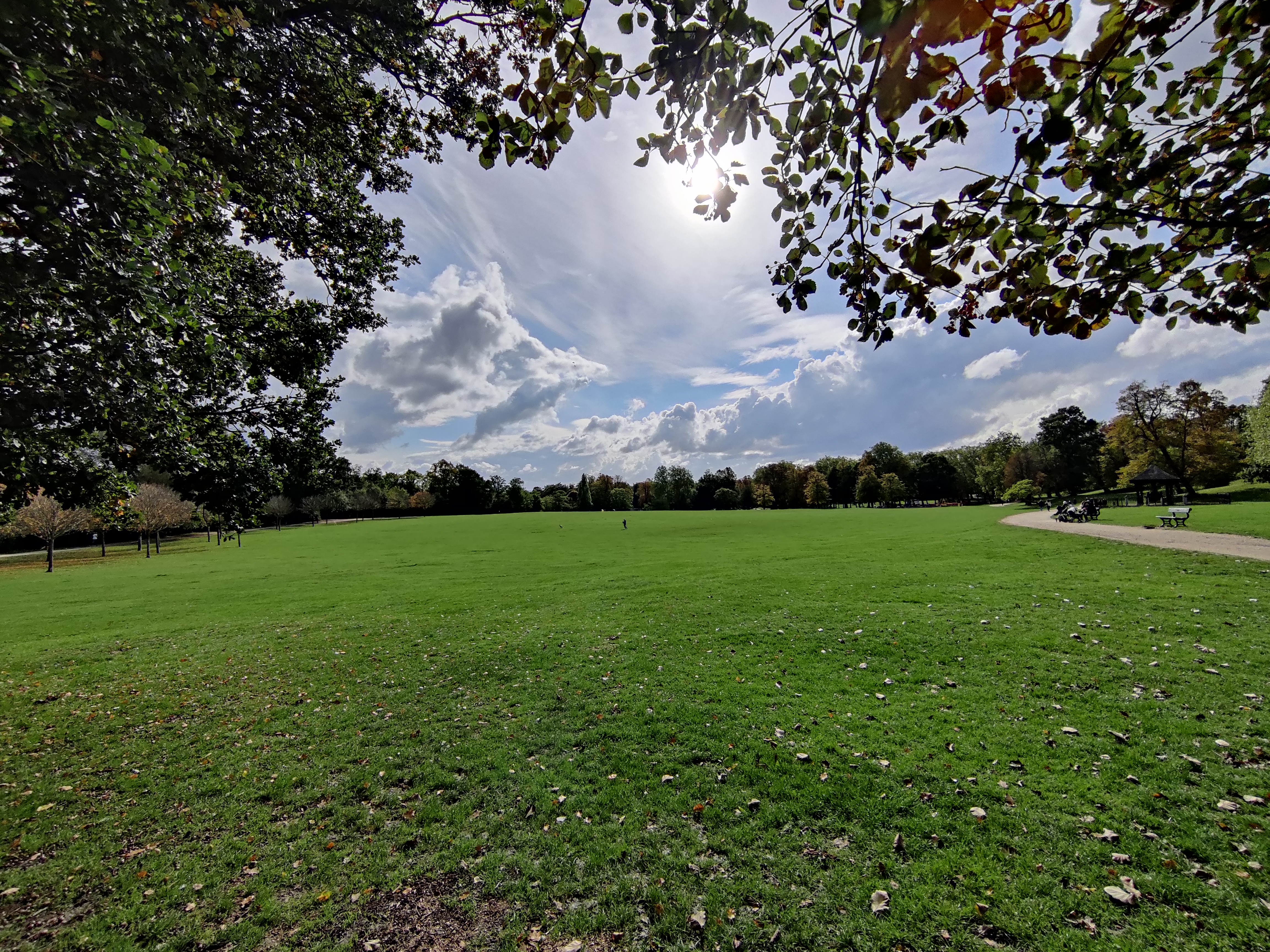
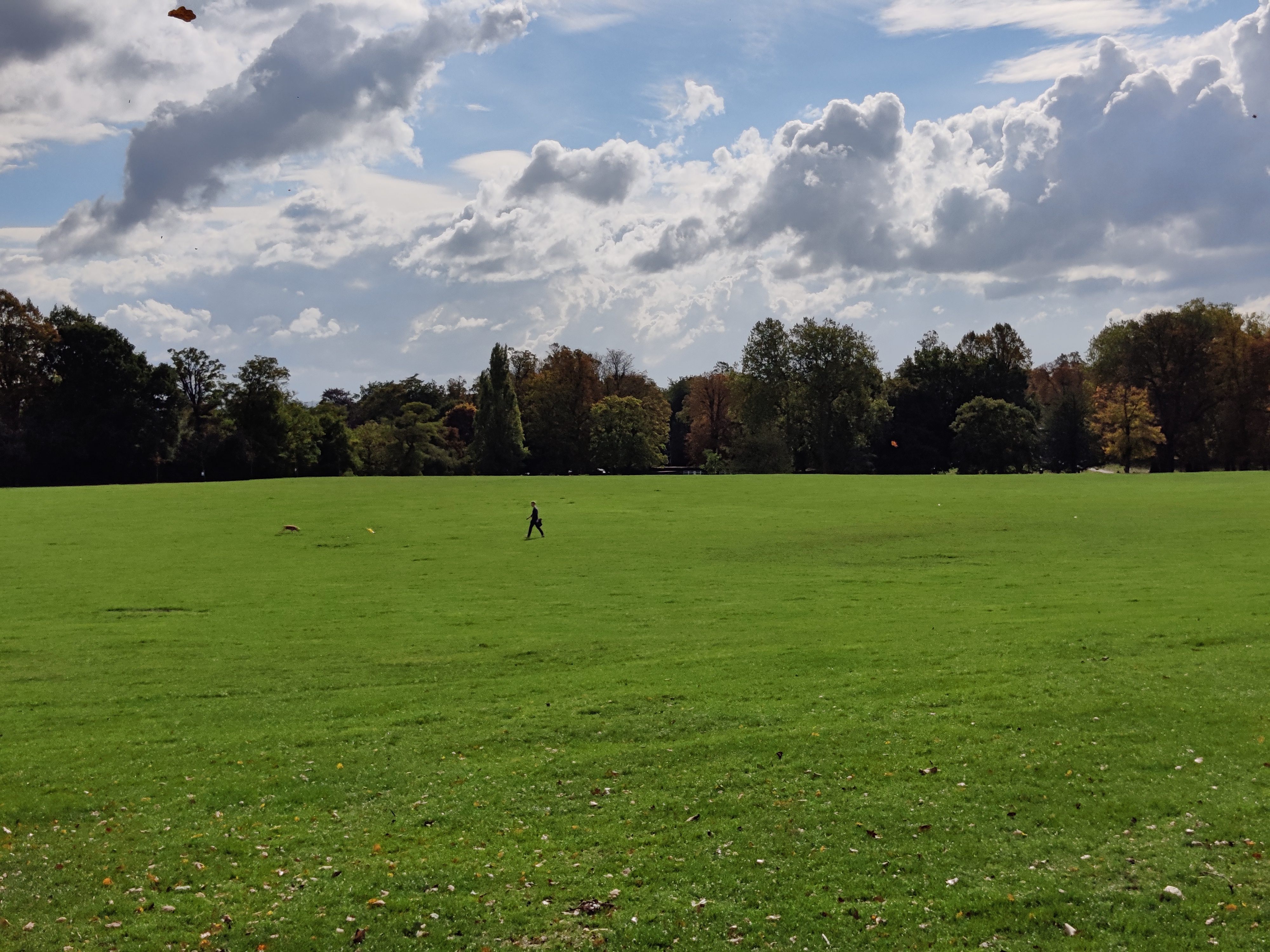
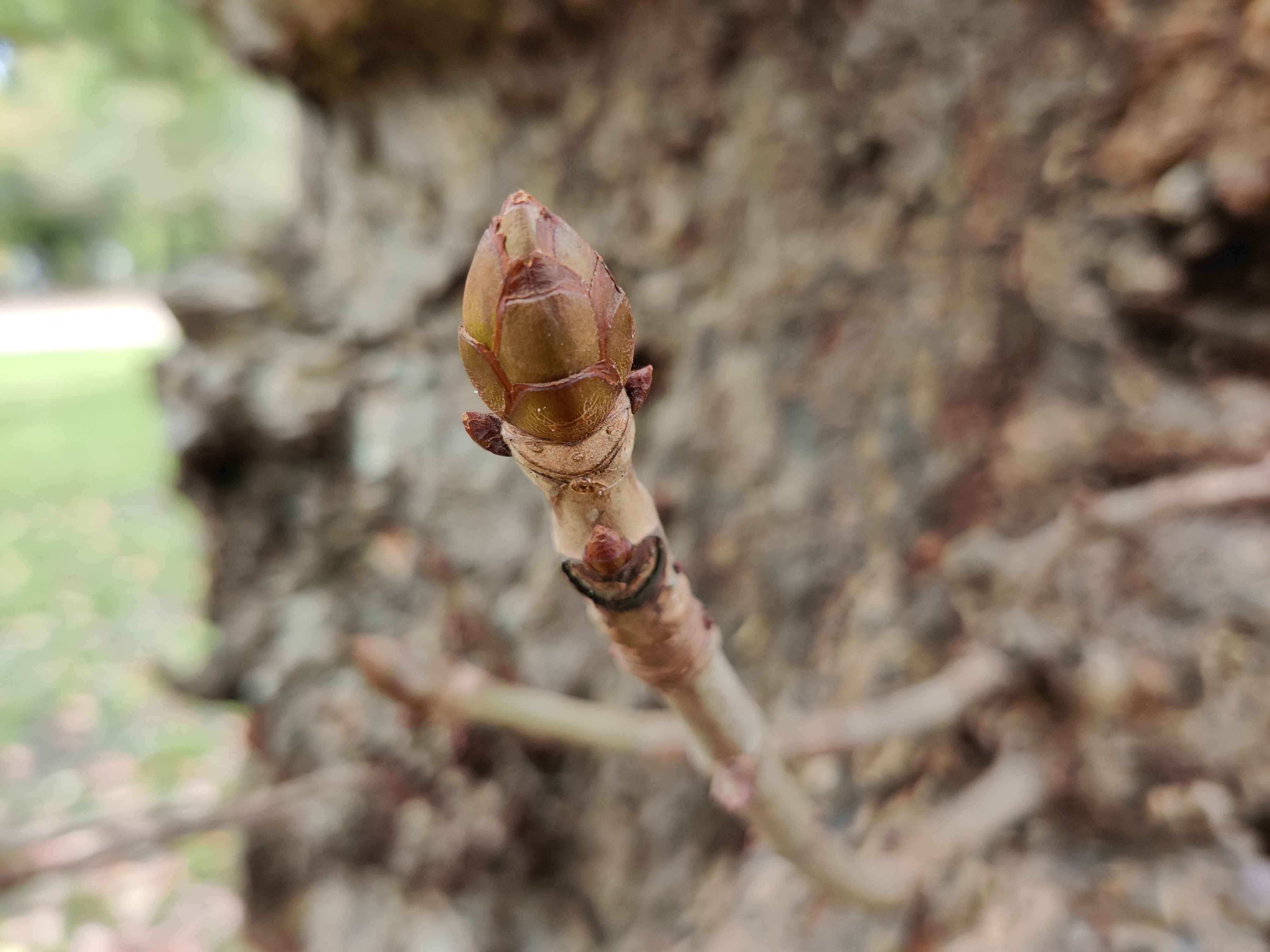
Specs and performance
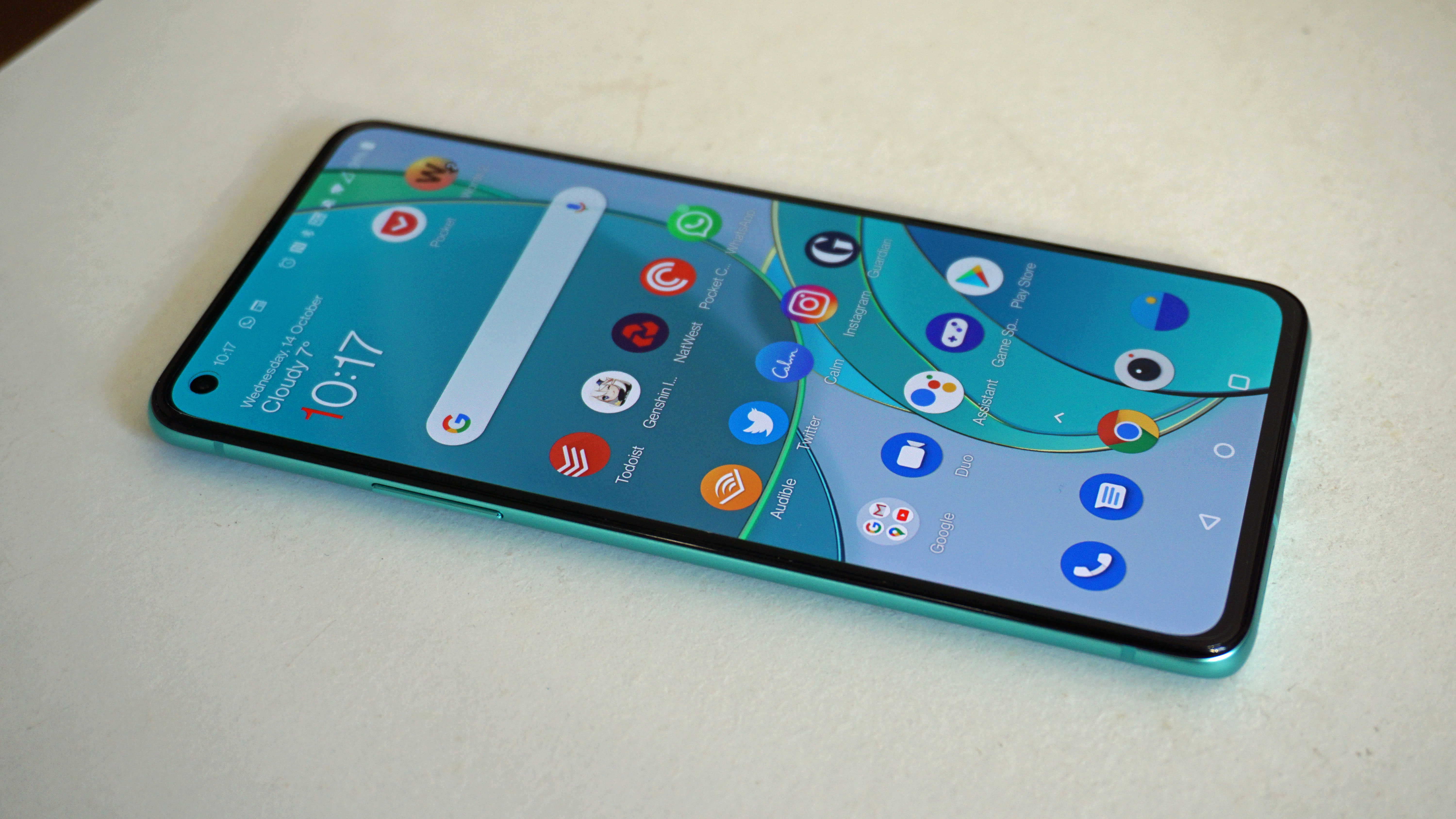
The OnePlus 8T features a close-to top-tier chipset in the form of the Qualcomm Snapdragon 865. This is one of the most powerful chips on the market, although some flagships use the slightly more recent Snapdragon 865 Plus, which is optimized for gaming.
You certainly won’t have a problem with what the OnePlus 8T can do if you opt for the 12GB of RAM model which we tested. We found it to be a powerful performer, and it breezed through everyday tasks such as loading apps and games, while gaming performance was also impressive – we experienced no stuttering, and visuals looked great.
In some regions you’ll be able to buy an 8GB of RAM variant, which we haven’t tested for the purposes of this review, but we’d expect it to still be capable enough – many phones with 8GB of RAM are able to do as much as phones with more.
Benchmarking software - Geekbench 5 specifically - found the OnePlus 8T had a score of 2107, which is quite lower than some of the rest of the competition but we didn't see that reflected in day to day use.
You’ll have the option of 128GB or 256GB of storage too. If you opt for the 128GB version, you’ll get 8GB of RAM while those who are happy to spend a little extra on the 256GB model will get 12GB of RAM.
Our recommendation would be to opt for the 12GB/256GB version if this is a handset you plan to use for a long time, as you’ll likely fill your phone with apps, media and more over time, and won’t want the hassle of having to delete things to free-up space – and note that OnePlus phones don’t feature microSD expansion.
As with the other OnePlus 8 phones, the OnePlus 8T has 5G connectivity, enabling you to make the most of the next-gen internet connectivity. Note, though, that in order to use 5G your carrier will have to support it, you’ll need a contract or SIM deal that offers 5G, and you’ll need to be in an area that has coverage.
The phone is running Android 11 software out of the box, which allows you to make use of a wide variety of new features. As on all OnePlus phones this comes with the company’s OxygenOS custom UI overlaid, which gives Android a distinctive look.
Battery life
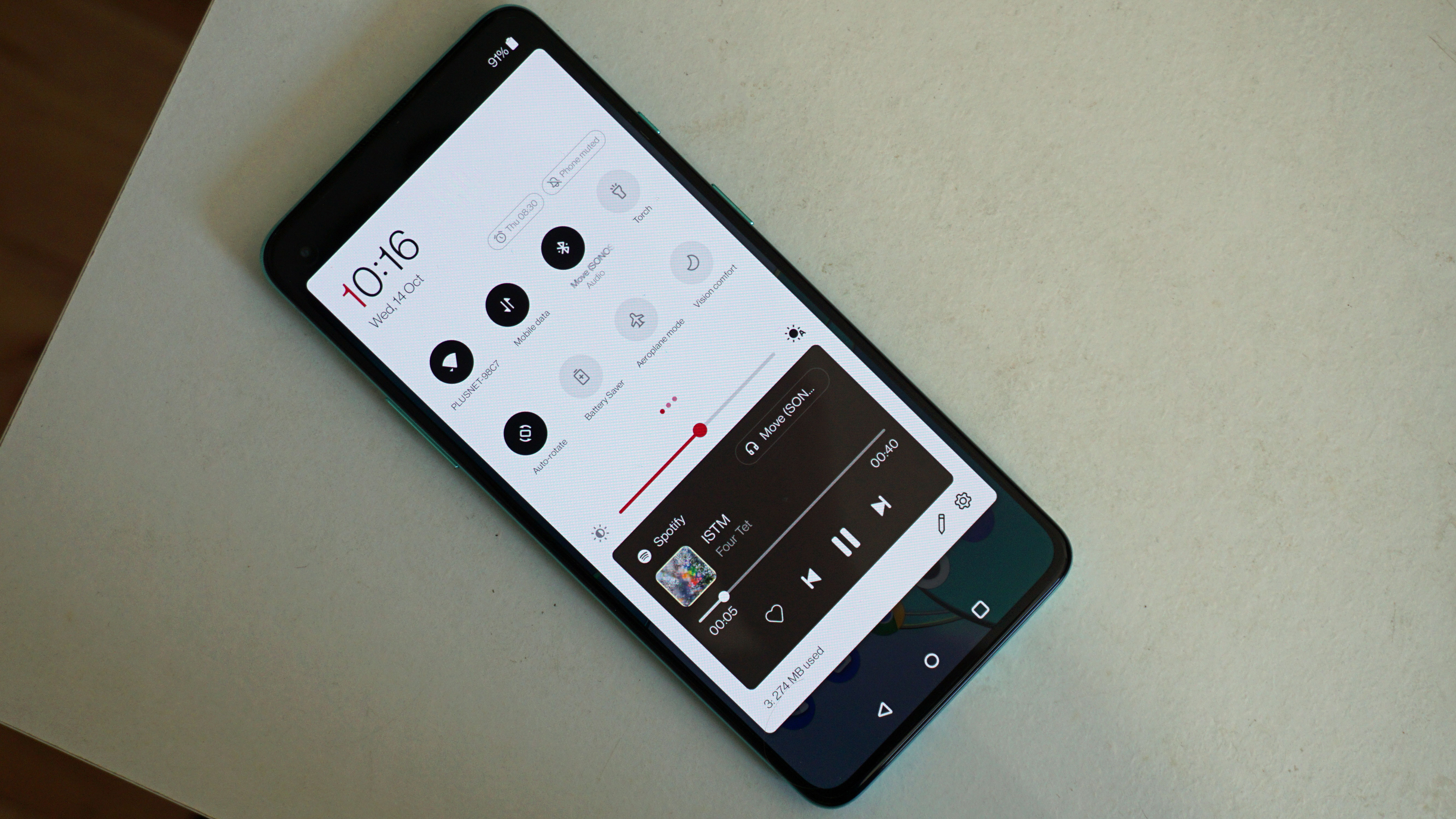
The OnePlus 8T features a 4,500mAh battery, which is bigger than the 4,300mAh battery in the OnePlus 8 (the 8 Pros is a fraction bigger at 4,510mAh), and the improvement is noticeable. We found that it comfortably powered the phone through a typical day on a full charge – we often had 10-20% left in the tank at the end of a long day.
If you’re using your phone consistently you may experience occasions when the handset will need topping up before the end of the day, but this is a phone that can compete with the best on the market when it comes to battery life.
There’s no wireless charging, but the 8T does feature the company’s Warp Charge fast-charging technology. This is some of the fastest charging tech available, and if you often find that you need to get a lot of juice into your phone quickly you’ll be happy with what you get here.
Should I buy the OnePlus 8T?
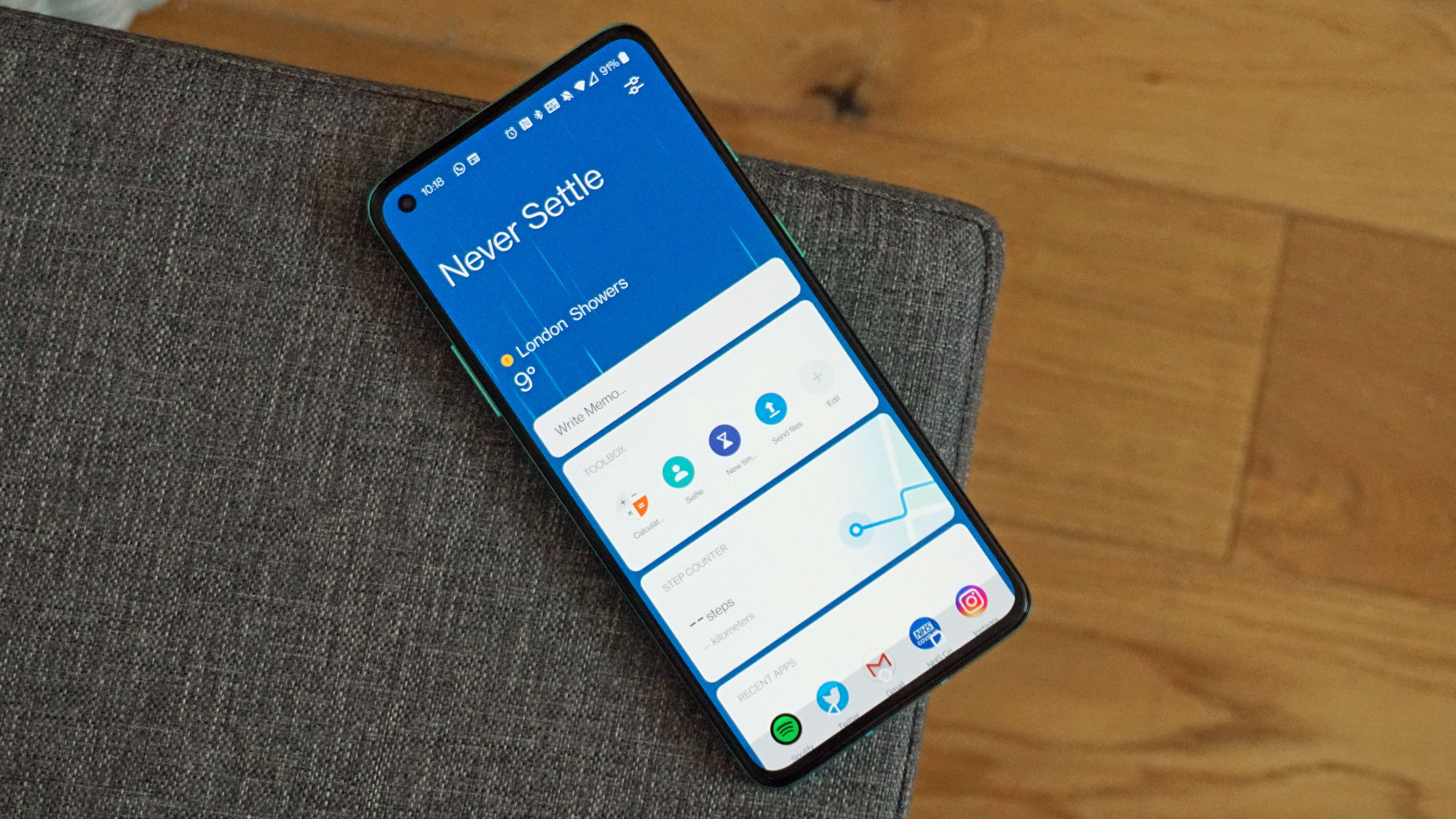
Buy it if…
You love the OnePlus look and feel
OnePlus phones have a distinctive style, from software tweaks to bold color choices – this time around it’s Aquamarine Green. If you love the look and feel of OnePlus handsets, you won’t be disappointed by this phone.
You want a gorgeous screen
The resolution may not be the best on the market, but the OnePlus 8T has a screen that looks great thanks to its 120Hz refresh rate and strong brightness levels. It’s one of the better smartphone screens on the market, and a pleasure to use.
You need strong battery life
The OnePlus 8T isn’t going to last you two whole days from a full charge, but it’s rare that any phone without an exceptionally large battery is able to do that. Instead, you’ll comfortably get a day of use out of this phone, and we found that to be more than enough.
Don’t buy it if…
You need a cheap phone
OnePlus phones aren’t as affordable as they were when the company first started making them. The company has dropped the price from the OnePlus 8, but the OnePlus 8T price isn’t as low as some may hope for.
You want wireless charging
While OnePlus has brought wireless charging to the OnePlus 8 Pro, it hasn’t included it on other phones, including the 8T. It’s not a must-have feature for many, but it’s something to bear in mind if you’re looking to cut the charging cord.
You need the best camera on the market
The OnePlus 8T has a capable rear camera that can take some great-looking shots, but you’re not getting the cutting-edge camera tech here that you’ll find on phones like the Samsung Galaxy S20 range or the Huawei P40 Pro.
You can save big with our OnePlus coupons. Find the best deals on OnePlus smartphones, accessories, and more for top-quality tech at great prices.
First reviewed: October 2020
James is the Editor-in-Chief at Android Police. Previously, he was Senior Phones Editor for TechRadar, and he has covered smartphones and the mobile space for the best part of a decade bringing you news on all the big announcements from top manufacturers making mobile phones and other portable gadgets. James is often testing out and reviewing the latest and greatest mobile phones, smartwatches, tablets, virtual reality headsets, fitness trackers and more. He once fell over.
